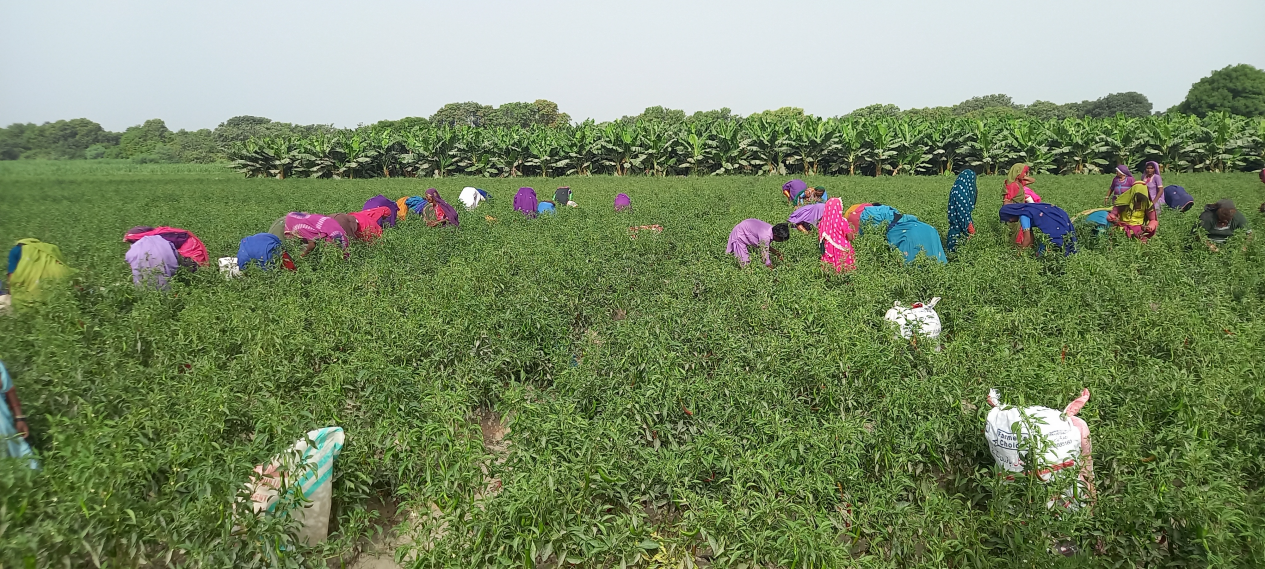CPEC to boost Pakistan’s agricultural modernization and food industrialization
LAHORE, Oct. 26 (Gwadar Pro) - “The main process of raising seedlings is to distribute the seeds evenly on the seedling bed, spray water to make the seeds stick to the soil, cover them with plastic film, and then build a small arch shed to increase temperature and humidity,” said Zhang Jishu, a Chinese pepper technician who is busy training Pakistani employees on how to grow pepper seedlings in a greenhouse in preparation for transplanting them into the fields next month.
Zhang is an expert from Sichuan Litong Food Co., Ltd. Talking to Gwadar Pro, he said that the company would implement a 1,000-acre pepper cultivation demonstration garden in Multan during the 2022-2023 growing season. In partnership with local agribusinesses and farmers in Pakistan, it intends to take over 15,000 acres of pepper orders in South Punjab, with a planned harvest of 30,000 tonnes of dried pepper. The company also plans to build two pepper processing plants in Lahore and Multan and is currently in the process of locating them.

Pakistani farmers harvest chili peppers in May.
Litong completed cultivar selection and trial planting in 2019, experimental planting in 2020, and small-scale planting in 2021. Last month, the project organized and implemented by the company entered the first batch of agricultural projects under China-Pakistan Economic Corridor (CPEC).
Pepper is an essential vegetable and condiment in China, with many processed products, a lengthy industrial chain, and high added value. The Chinese market has a huge demand for bulk crops such as peppers and broad beans. Meanwhile, poor seed quality, lack of modern farming techniques, low yields and lack of skilled agricultural labor are among the major factors holding back agricultural development in Pakistan.
To harvest high-quality peppers, Litong is providing technology and training to local farmers. It has carried out cooperation with Pakistani colleges and universities to cultivate talents with both agricultural knowledge and management ability, recruit local professional managers and top-notch technical talents. In China, it cooperates with Sichuan Agricultural University and other institutions to set up demonstration bases for industry-university-research projects.
Seeds are the "chips" of agriculture. Chen Changwei, Chairman of Litong claimed that the company would bring China's advanced breeding technology to Pakistan next year, work with Pakistan's outstanding agricultural enterprises to carry out a variety of technology researches, production, industrial development researches, technical training, the establishment of R&D and testing platform, marketing and human resources platform, giving full play to the leading role of agricultural technology under CPEC.
According to Chen, there is a huge demand in the global market, strong complementarity in the food sector between China and Pakistan, and bright prospects for food processing.
Currently, there is an urgent need for Pakistan to address the insufficient foreign exchange reserves through exports. “Through the way of industrial integration, Sichuan Litong will trade agricultural products and food processing products in Pakistan with other countries,” Chen said, “it is estimated that by 2026, the trade volume of agricultural food processing products will reach USD 3 billion per year.”




